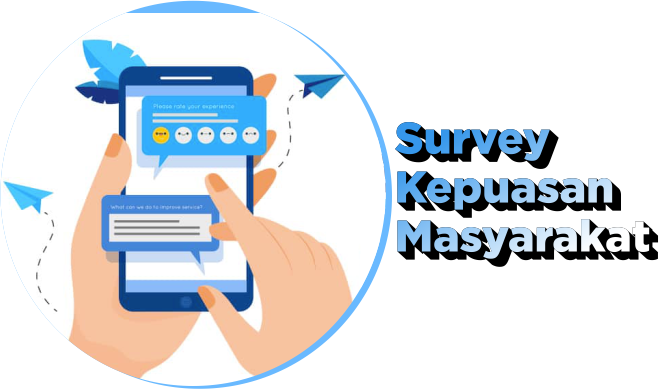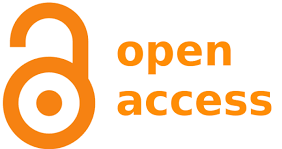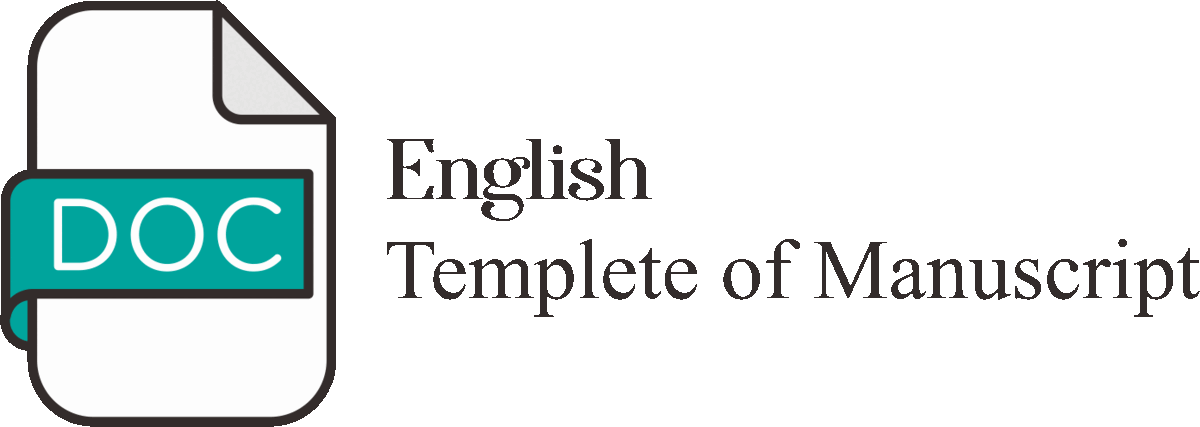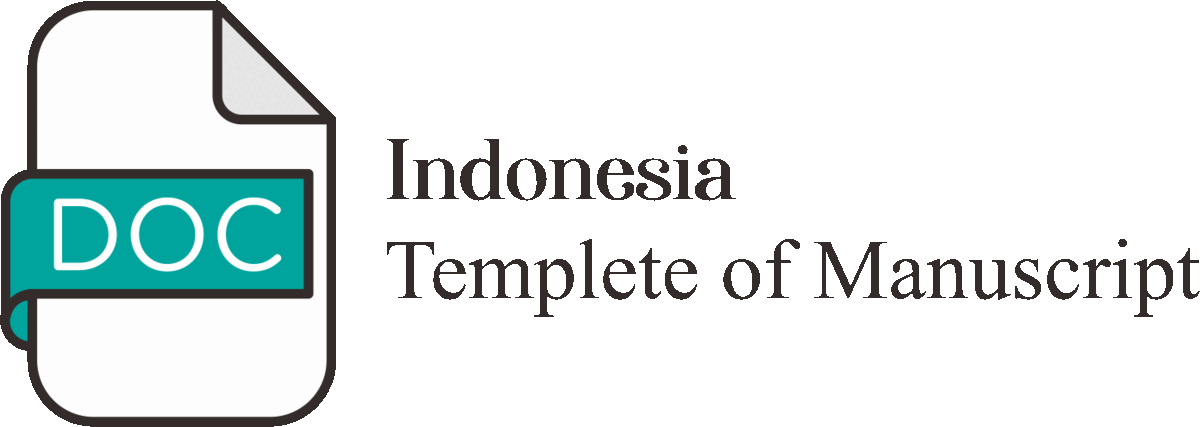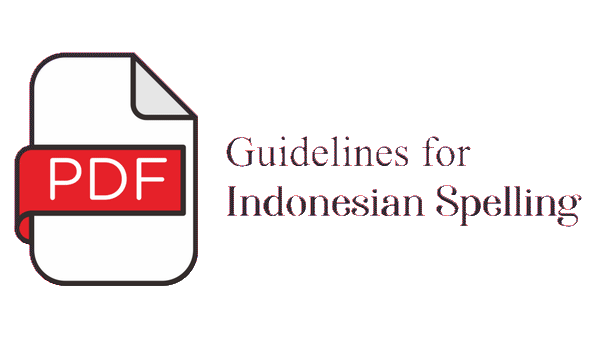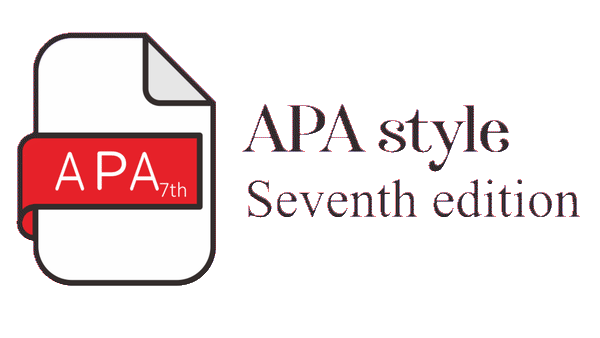Analisis Persepsi Masyarakat Pesisir terhadap Sampah Plastik saat Pandemi Covid-19 di Desa Tembokrejo, Kecamatan Muncar
Abstract
Berdasarkan data TPA Tembokrejo, jumlah sampah plastik meningkat sebesar 20% selama masa pandemi Covid-19 sehingga sampah plastik sering ditemukan di daerah pesisir, seperti di Kecamatan Muncar Kabupaten Banyuwangi dan mengganggu berlabuhnya kapal. Penelitian yang dimulai pada Maret 2022 hingga Agustus 2022 ini bertujuan untuk melihat hubungan persepsi masyarakat pesisir terhadap sampah plastik saat pandemi Covid-19. Metode penelitian dilakukan dengan teknik survei terhadap 100 responden yakni masyarakat rumah tangga daerah pesisir Desa Tembokrejo, Kecamatan Muncar, yang kemudian dianalisis secara kuantitatif dan disajikan secara deskriptif untuk mengukur pengetahuan, pengalaman, dan persepsi. Data primer yang digunakan dalam penelitian ini berasal dari persepsi dan partisipasi masyarakat pesisir, sedangkan data sekunder bersumber dari literatur. Penelitian ini menggunakan metode analisis deskriptif kuantitatif sebagai bentuk penjabarannya. Hasil penelitian ini adalah tingkat persepsi masyarakat pesisir terhadap isu sampah plastik saat pandemi Covid-19 di wilayah Kecamatan Muncar sebesar 60%. Hal tersebut menunjukkan bentuk perhatian terhadap kondisi sampah plastik di sekitar mereka karena sampah plastik adalah masalah yang bisa dibilang krusial dan harus segera diatasi. Hasil uji korelasi menunjukkan adanya korelasi nyata pada faktor internal serta eksternal terhadap persepsi masyarakat pesisir mengenai sampah plastik di Kabupaten Banyuwangi. Hasil tersebut juga berhubungan dengan tingkat partisipasi masyarakat yang tinggi dalam penanganan sampah plastik, yakni sebesar 42 persen.
Title: Perceptions Analysis of Coastal Communities on Plastic Waste During the Covid-19 Pandemic in The Tembokrejo Village, Muncar District
Based on data from Tembokrejo landfill, the amount of plastic waste increased by 20% during the Covid-19 pandemic, which resulted that plastic waste often found in coastal areas such as in Muncar Subdistrict, Banyuwangi Regency, disrupting the anchoring of ships. The research which began in March 2022 until August 2022, aims to see the relationship between the perceptions of coastal communities on plastic waste during the Covid-19 pandemic. The research method was carried out using a survey technique of 100 respondents, namely householdsin the coastal area of Tembokrejo Village, Muncar District, which were then analyzed quantitatively and presented descriptively to measure knowledge, experience and perception. The primary data used in this study came from the perceptions and participation of coastal communities, while the secondary data sourced from the literature. This study uses a quantitative descriptive analysis method as a form of elaboration. The results of this study obtained that the level of perception of coastal communities on the issue of plastic waste during the Covid-19 pandemic in the Muncar sub-district area was 60%. This shows a form of attention to the condition of plastic waste around them, and makes that plastic waste is a problem that can be considered crucial and must be addressed immediately. Then the results of the correlation test show a real correlation in internal and external factors on the perception of coastal communities regarding plastic waste in Banyuwangi district. These results are also related to the high level of community participation in handling plastic waste, which is 42 percent.
Keywords
Full Text:
PDFReferences
Adams, J. G., & Walls, R. M. (2020). Supporting the health care workforce during the COVID-19 global epidemic. JAMA - Journal of the American Medical Association, 323(15), 1439–1440. https://doi.org/10.1001/jama.2020.3972
Adanikin, O. (2020). “Untold Stories of Abuja Waste Collectors Who Work Daily Despite the Risk of COVID-19.” International Centre for Investigative Reporting, June 1. https://www.icirnigeria.org/untold-stories-of-abuja-waste-collectors-whowork-daily-despite-the-risk-covid-19/.
Alfitri, A., Helmi, H., Raahrjo, S., dan Afrizal, A. (2020). Sampah plastik sebagai konsekuensi modernitas dan upaya pennaggulangannya. Jurnal Sosiologi Andalas, 6(2), 122–130. https://doi.org/10.25077/jsa.6.2.122-130.2020
Asmara, B. H., & Kurniawan, A. (2015). Persepsi masyarakat terhadap sampah dan pengelolaan sampah di Kabupaten Karanganyar (Kasus di Kecamatan Karanganyar dan Tawangmangu). Jurnal Bumi Indonesia. 4(4).
Azwar, S. (2000). Reliabilitas dan validitas, Yogyakarta: Pustaka Belajar. 2010. Metode Penelitian. Yogyakarta: Pustaka Belajar.
Blomm, Benjamin S. (1979). Taxonomy educational objective book, cognitive domain. London: Longman Ltd.
Candra I. (2012). Partisipasi masyarakat dalam pengelolaan sampah rumah tangga (Studi kasus di Keluarahan Siantan Tengah Kecamatan Pontianak Utara). Sociodev: Jurnal Ilmu Sosiastri, 1(1), 1–21.
Cohen, L., Manion, L., & Morrison, K. (2007). Research methods in education (6th ed.). London. New York: Routllege Falme.
Cole, M., Lindeque, P., Halsband, C., and Galloway, T. S. (2011). Microplastics as contaminants in the marine environment: A reviews. Marine Pollutan Bulletin. 62. 2588–2597. https://doi.org/10.1016/j.marpolbul.2011.09.025
Depledge, M. H., Lovell, R., Wheeler, B. W., Morrissey, K. M., White, M., & Fleming, L. E. (2017). Future of the sea: Health and wellbeing of coastal communities. https://hthttps//www.gov.uk/government/publications/future-of-the-sea-health-and-wellbeing-of-coastal-communities
Dewi DANN, Hapsari TD. (2012). Analisis persepsi dan partisipasi masyarakat pesisir pada pengelolaan KKLD Ujungnegoro Kabupaten Batang. SEPA. 9(1):117-124
Djumransjah. (2004). Pengantar Filsafat Pendidikan. Malang: Bayumedia Publishing.
El Haggar, S., & El Hatow, L. (2009). Reinforcement of thermoplastic rejects in the production of manhole covers. Journal of Cleaner Production, 17(4), 440-446. https://doi.org/10.1016/j.jclepro.2008.07.007
Erwina. (2005). Analisis persepsi dan partisipasi masyarakat terhadap kualitas lingkungan di daerah pesisir kasus di Kelurahan Marunda, Jakarta Utara. Tesis. Bogor: Institut Pertanian Bogor.
Faizal, B. (2002). Perekonomian Indonesia: Tantangan dan harapan bagi kebangkitan Indonesia. Jakarta: Erlangga.
Firdaus, M. (2017). Analisis pola sirkulasi arus musim timur di perairan Muncar, Banyuwangi (Doctoral dissertation, Universitas Brawijaya).
Frisellya P, Rahardyan B. (2009). Studi Persepsi Tingkat Kekotoran Untuk Mendukung Kegiatan penyapuan Jalan (Studi Kasus: Kota Bandung). Skripsi. Bandung. Institut Teknologi Bandung.
Hoornweg, Daniel; Bhada-Tata, Perinaz. (2012). What a Waste : A Global Review of Solid Waste Management. Urban development series;knowledge papers no. 15. World Bank, Washington, DC. © World Bank. https://openknowledge.worldbank.org/handle/10986/17388
Giddens, Anthony. (2001). Runaway world: Bagaimana globalisasi merombak kehidupan kita. Jakarta: Gramedia Pustaka Utama.
Hadiwiyoto, S. (1983). Penanganan dan pemanfaatan sampah. Yayasan Idayu. Jakarta.
Hardiatmi, S. (2011). Pendukung keberhasilan pengelolaan sampah kota. Jurnal Inovasi Pertanian, 10(1), 50–66.
Hermawan Y. (2005). Hubungna antara tingkat pendidikan dan persepsi dengan perilaku ibu rumah tangga dalam pemeliharaan kebersihan lingkungan. Bumi Lestari Journal of Environment, 5(2), 1–16.
Jambeck, J. R., Geyer, R., Wilcox, C., Siegler, T. R., Perryman, M., Andrady, A., ... & Law, K. L. (2015). Plastic waste inputs from land into the ocean. Science, 347(6223), 768–771. https://doi.org/10.1126/science.1260352
Koesrimardiyati A. (2013). Keberlanjutan pengelolaan sampah berbasis masyarakat (Studi kasus peran perempuan dalam kegiatan pengelolaan sampah di RW 013 Cipinang Melayu Jakarta Timur) [tesis]. Depok (ID): Universitas Indonesia.
Kumar, A. A., Karthick, K., & Arumugam, K. P. (2011). Properties of biodegradable polymers and degradation for sustainable development. International Journal of Chemical Engineering and Applications, 2(3), 164–167. http://www.ijcea.org/.../95-A580.htm
Kusumawati, I., Setyowati, M., & Salena, I. Y. (2018). identifikasi komposisi sampah laut di pesisir Aceh Barat. Jurnal Perikanan Tropis, 5(1), 59–69. https://doi.org/10.35308/jpt.v5i1.1026
Manurung, R. (2008). Persepsi dan partisipasi siswa sekolah dasar dalam pengelolaan sampah di lingkungan sekolah. Jurnal Pendidikan Penabur, 1(10), 22–34.
Mardikanto, T., & Soebianto, P. (2015). Pemberdayaan Masyarakat dalam Perspektif dan Kebijakan Publik. Bandung: PT Alfabeta.
Mikkelsen, B. (2011). Metode penelitian partisipatoris dan upaya pemberdayaan: Panduan bagi praktisi lapangan. Yayasan Pustaka Obor Indonesia.
Mira, M., & Zulkarnen, R. (2008). Persepsi masyarakat peisir terhadap penggunaan energi alternatif untuk melaut. Jurnal Sosial Ekonomi Kelautan dan Perikanan. 3(2). 233–241. http://dx.doi.org/10.15578/jsekp.v3i2.5855
Muise, I., Adams, M., Côté, R., & Price, G. W. (2016). Attitudes to the recovery and recycling of agricultural plastics waste: A case study of Nova Scotia, Canada. Resources, Conservation and Recycling, 109, 137–145. https://doi.org/10.1016/j.resconrec.2016.02.011
Mulyadi, A., Husein, S., & Saam, Z. (2010). Perilaku masyarakat dan peranserta pemerintah daerah dalam pengelolaan sampah di Kota Tembilahan. Jurnal Ilmu Lingkungan, 3(2), 147–162.
Nugraha, A., Sutjahjo, S. H., & Amin, A. A. (2018). Analisis persepsi dan partisipasi masyarakat terhadap pengelolaan sampah rumah tangga di Jakarta Selatan. Jurnal Pengelolaan Sumberdaya Alam Dan Lingkungan (Journal of Natural Resources and Environmental Management), 8(1), 7–14. https://doi.org/10.29244/jpsl.8.1.7-14
Nzeadibe, T. C., & Ejike-Alieji, A. U. (2020). Solid waste management during Covid-19 pandemic: policy gaps and prospects for inclusive waste governance in Nigeria. Local Environment, 25(7), 527–535. https://doi.org/10.1080/13549839.2020.1782357
Ondara, K., & Dhiauddin, R. (2020). Indonesia marine debris: Banda Aceh coastal environment identification. Jurnal Kelautan Tropis, 23(1), 117–126. https://doi.org/10.14710/jkt.v23i1.6238
Peraturan Pemerintah No 19 Tahun 1999
Peraturan Presiden Republik Indonesia Nomor 97 Tahun 2017
Peraturan Presiden Republik Indonesia No 83 Tahun 2018 Pasal 1 ayat (1).
Riswan, Sunoko RHR, Hadiyanto A. (2011). Pengelolaan Sampah Rumah Tangga di Kecamatan Daha Selatan. Jurnal Ilmu Lingkungan. 9(1):31-39
Sarwono SW. (1999). Psikologi sosial individu dan teori-teori psikologi sosial. Jakarta: Balai Pustaka.
Sastropoetro. Santoso R.A. (1986). Partsipasi, komunitas, persuasi, dan disiplin dalam pembangunan nasional. Bandung
Setyowati, R., & Mulasari, S. A. (2013). Pengetahuan dan perilaku ibu rumah tangga dalam pengelolaan sampah plastik. Kesmas: Jurnal Kesehatan Masyarakat Nasional (National Public Health Journal), 7(12), 562–566. http://dx.doi.org/10.21109/kesmas.v7i12.331
Silva, A. L. P., Prata, J. C., Walker, T. R., Campos, D., Duarte, A. C., Soares, A. M., Rocha-Santos, T. (2020). Rethinking and optimising plastic waste management under COVID-19 pandemic: Policy solutions based on redesign and reduction of single-use plastics and personal protective equipment. Science of the Total Environment. 742. 140565. https://doi.org/10.1016/j.scitotenv.2020.140565
Silva, A. L. P., Prata, J. C., Walker, T. R., Duarte, A. C., Ouyang, W., Barcelò, D., & Rocha-Santos, T. (2021). Increased plastic pollution due to COVID-19 pandemic: Challenges and recommendations. Chemical Engineering Journal, 405, 126683. https://doi.org/10.1016/j.cej.2020.126683
Simbolon, A. R. (2017). Karakteristik dan sikap peduli lingkungan masyarakat Pesisir Kawasan Cilincing DKI Jakarta. Jurnal Pro-Life, 4(3), 456–466. https://doi.org/10.33541/jpvol6Iss2pp102
Soehardi Sigit. (1999). Pengantar metodologi pendekatan praktek. Jakarta : Rineka Cipta
Sucipto, C. D. S. (2012). Teknologi pengolahan daur ulang sampah. Yogyakarta: Gosyen publising.
Sudijono, A. (2010). Pengantar statistik pendidikan. Jakarta: PT Raja Grafindo Persada.
Sugihartono, Fathiyah K. N., Harahap, F., seyiawati F. A., Nurhayati, S. R. (2007). Psikologi pendidikan. Yogyakarta : UNY Press.
Sugiyono. (2004). Metode penelitian. Bandung: Alfabeta.
Sugiyono. (2015). Metode penelitian kombinasi (Mix Methods). Bandung: Alfabeta.
Sukmana, Oman. (2003). Dasar-dasar psikologi lingkungan. Malang: Bayu Media.
Tarhadi, Elis, I., Agus, A.D., (2014). Studi pola dan karakteristik arus laut di perairan Kaliwungu Kendal Jawa Tengah Pada Musim Peralihan I. J. Oseanografi, 3, 16–25.
Thoha, M. (1999). Perilaku organisasi. Bandung: Roksadaya.
Tansatrisna. (2014). Persepsi dan partisipasi masyarakat dalam pengelolaan sampah rumah tangga. IPB.
United Nations Environment Programme. (2015). Global waste management outlook. http://www.unep.org/ietc/Portals/136/Publications/Waste%20Management/GWMO%20report/GWMO%20full%20report.pdf.
Vanapalli, K. R., Sharma, H. B., Ranjan, V. P., Samal, B., Bhattacharya, J., Dubey, B. K., & Goel, S. (2021). Challenges and strategies for effective plastic waste management during and post COVID-19 pandemic. Science of The Total Environment, 750, 141514. https://doi.org/10.1016/j.scitotenv.2020.141514
Van Doremalen, N., Bushmaker, T., Morris, D. H., Holbrook, M. G., Gamble, A., Williamson, B. N., ... & Munster, V. J. (2020). Aerosol and surface stability of SARS-CoV-2 as compared with SARS-CoV-1. New England journal of medicine, 382(16), 1564–1567. https://doi.org/ 10.1056/NEJMc2004973 https://www.nejm.org/doi/full/10.1056/nejmc2004973
Veitzhal Rivai. (2002). Kepemimpinan dan perilaku organisasi. Jakarta: Raja Grafindo Persada.
Wahyudin, Y. (2013). General socio-economic profile of coastal community. Available at SSRN 2211334. https://dx.doi.org/10.2139/ssrn.2211334
Wichai-Utcha, N., & Chavalparit, O. (2019). 3Rs Policy and plastic waste management in Thailand. Journal of Material Cycles and Waste Management, 21, 10–22. https://doi.org/10.1007/s10163-018-0781-y
Yolarita E. (2011). Pengelolaan sampah dengan prinsip 3R di Kota Solok. Tesis. Bandung. Universitas Padjadjaran
Zahra, F., & Damanhuri, T. P. (2011). Kajian komposisi, karakteristik, dan potensi daur ulang sampah di TPA Cipayung, Depok. Jurnal Teknik Lingkungan, 17(1), 59–69. https://doi.org/10.5614/jtl.2011.17.1.6
DOI: http://dx.doi.org/10.15578/jsekp.v18i2.12434
Indexed by:
-------------------------------------------------------------------------------------
Published by
Research Center for Marine and Fisheries Socio-Economic
in collaboration with
Indonesian Marine and Fisheries Socio-Economics Research Network

This work is licensed under a Creative Commons Attribution-NonCommercial-ShareAlike 4.0 International License.

